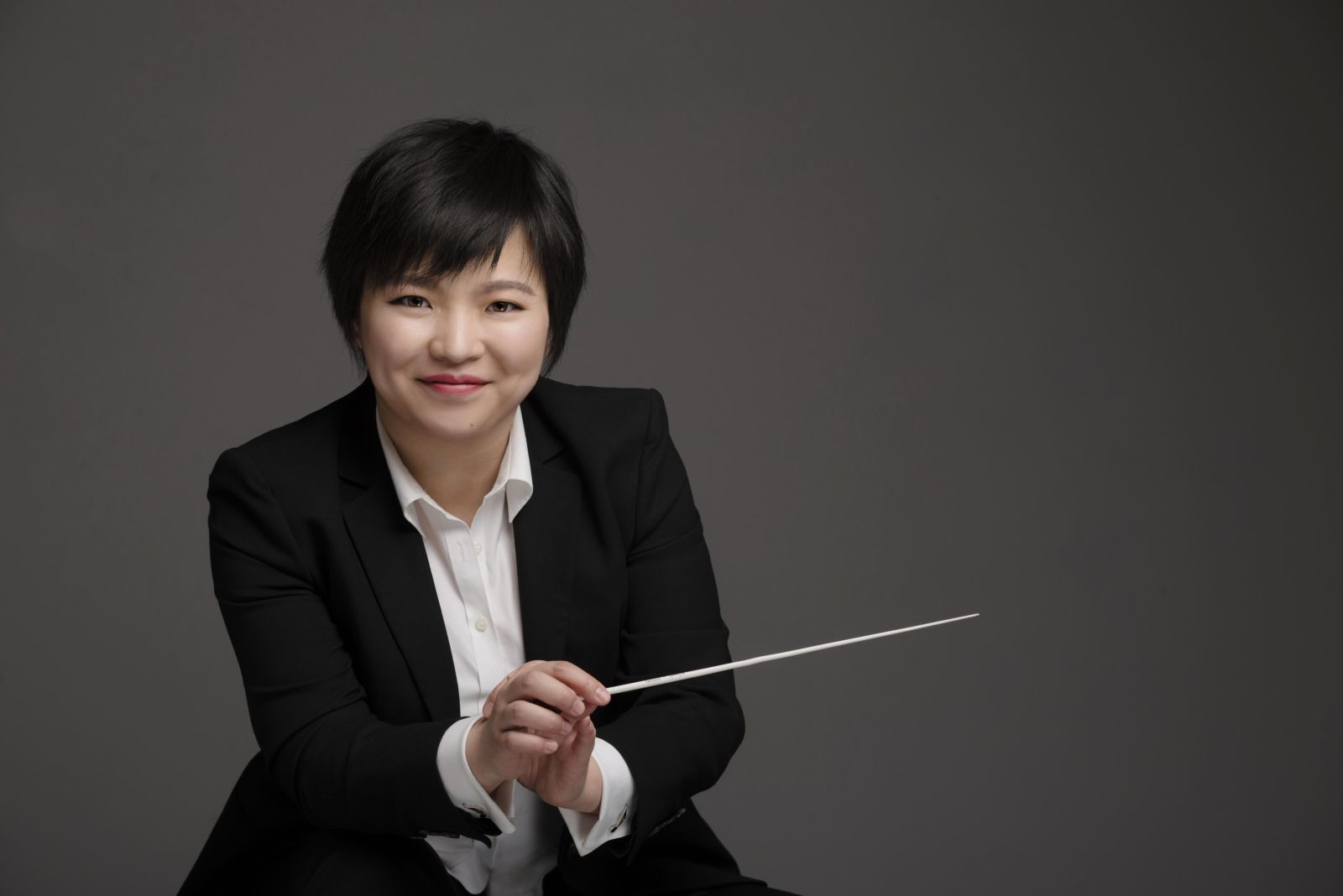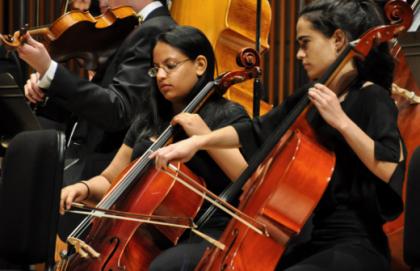Prelude to Hansel and Gretel
ENGELBERT HUMPERDINCK (1854–1921)
Our fantasy-themed program begins with the prelude to German composer Engelbert Humperdinck’s opera Hansel und Gretel, based on Grimm’s classic fairy tale. The prelude starts with a simple chorale in C Major played by the french horns, which recurs throughout the piece. The middle section is dynamic, tuneful and full of chromaticism, a staple characteristic of the Romantic period. Humperdinck brings back the C Major from the initial horn chorale for the last goodbye gesture, a fitting ending to this story of ingenuity and youthful hope.
Scheherazade
NIKOLAI RIMSKY-KORSAKOV (1844–1908)
The next work takes us to the realm of the Middle East, with music based on the Middle Eastern anthology “The One Thousand and One Nights.” We are guided by 19th century Russian composer Nikolai Rimsky-Korsakov, who employs a mix of Western European and more “oriental” compositional techniques. Scheherazade refers to the wife of a fictional Persian king who was known to execute his new wives after their wedding night. In a bid to stay alive, she enthralls the king with fantastic stories of love and adventure every night, revealing the ending only the next evening.
We hear the cruel king’s theme in the very beginning of the piece, which is brooding and unrelenting. To contrast, Scheherazade’s theme is a tender, winding, and songlike melody from the violin solo, accompanied by the harp. Rimsky-Kosakov was particularly masterful in celebrating the orchestra sound through his dazzling orchestration, beautiful melodies and glorious solo opportunities. We are excited to bring you the first and third movements from this symphonic suite: “The Sea and Sinbad’s Ship” and “The Young Prince and The Young Princess.”
Ma Mère l’Oye Suite
MAURICE RAVEL (1875–1937)
Our program ends with fairy-tales told by French composer Maurice Ravel. Ma Mère l’Oye Suite (Mother Goose Suite), composed at the tail end of the Belle Époque in 1910, takes us through a series of well known stories starting with the first movement, “Sleeping Beauty.” Ravel uses minimal but effective orchestration to depict a sense of timelessness. We then proceed to a variety of stories arranged in short dream-like pieces, based on Tom Thumb, the Empress of the Pagodas and Beauty and the Beast.
In this penultimate movement, we hear the elegant Beauty, played by the solo clarinetist, trying to persuade the beast to dance with her. The beast, played by the solo contrabassoon, tries to dance but is overwhelmed by his awkwardness. Eventually, the two melodies co-exist gracefully within the waltz, but the story doesn’t end there. Through a magical transformation, played by the harp, the Beast transforms back into a handsome prince.
In the last movement, the dreamlike tour of a fairy garden begins calmly. This movement perfectly embodies Ravel’s aesthetic: the glistening orchestration, endless melodies, and the gradual blossoming of musical momentum. In the end, with a final, bright flourish from the orchestra, the Sleeping Beauty has awoken!
— Program Notes by Yu Wang
 YU WANG
YU WANGYu Wang is a Canadian conductor based in Toronto. She completed her music history degree at the University of Toronto, and is currently finishing a graduate degree in orchestral conducting at the University of Maryland. She was the founding music director of the Linus Chamber Orchestra project, with a focus on reading and performing standard repertoire amongst early-career musicians. Wang has performed in the Pärnu Music Festival as a participant of the Järvi Academy. She has conducted concerts in Estonia, Romania, the UK, the USA and Canada. Since 2020, Wang has had a productive pandemic, hosting virtual outreach programs in music appreciation in the Chinese-Canadian community. A proud millennial, Wang enjoys avocado toast, video games and traveling.
ENSEMBLE PERSONNEL
University of Maryland Repertoire Orchestra
Music Director
Jesse Leong
Conductor
Yu Wang
Violin I
Justin Hung, Concertmaster
Rachel Friedman, Associate Concertmaster
Mark Jung
Ash Rajesh
Eileen Shih
Chloe Salkeld
Sarah Stambler
Kristina Sutliff
Caroline Tanner
Jonathan Toomer
Grace Yarrow
Violin II
Kara Gardiner, Principal
Elian Contreras, Assistant Principal
Abigail Aderinwale
Bryce Bathras
Thomas Brosh
Sam Chung
Collin Hart
Nashrah Rahman
Julie Young
Viola
William Mah, Principal
Micah McCready, Assistant Principal
Siddharth Bhatnagar
Ariel Hammerash
Joyce Jang
John Labbate
Jenna Woolney
Cello
Quinn Taylor, Principal
Frank Wang, Assistant Principal
Sydney Black
Syneva Colle
Wesley Hornpetrie
Rachel Robin
Bass
Natalie Feldman, Principal
Elizabeth Thilmany, Assistant Principal
Omar Martinez-Sandoval
Flute
Michelle Chen
Julia Cottingham
Annie Wilder
Kyla Perkinson
Olivia Sharon
Oboe
Joshua Faison
Joseph O’Leary
Clarinet
Eric O’Leary
Casey Schreck
Terrence Sotillio
Bassoon
Temon Birch
Jacob Keeley
Horn
Eric Aaron
Matt Gray
Ally Happ
David Perez
Molly Flanagan
Trombone
Lorraine Montana
Marlia Nash
Matt Larson
Tuba
Quinn Sarracco
Percussion
Christopher Boxall
Bruce Perry
Nehemiah Russell
Jonathan Sotelo
Trumpet
Cory Lewis
AJ Muña
Timpani
Steven Mehling
Harp
Lauren Twombly
Celesta
Jesse Leong
Special thanks to David Neely, Mark Wakefield, Jonathan Toomer, Rohan Joshi, Syneva Colle, Wesley Hornpetrie, Daphine Henderson and Omar Martinez-Sandoval.

 YU WANG
YU WANG